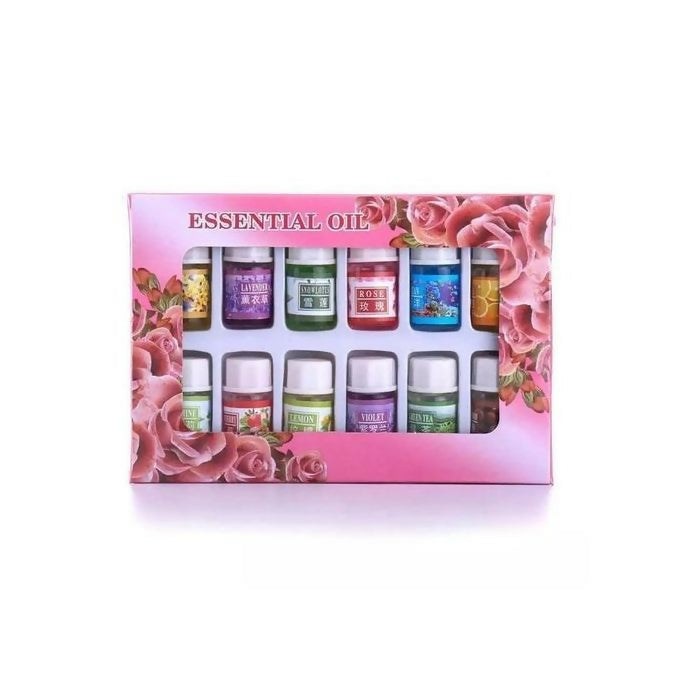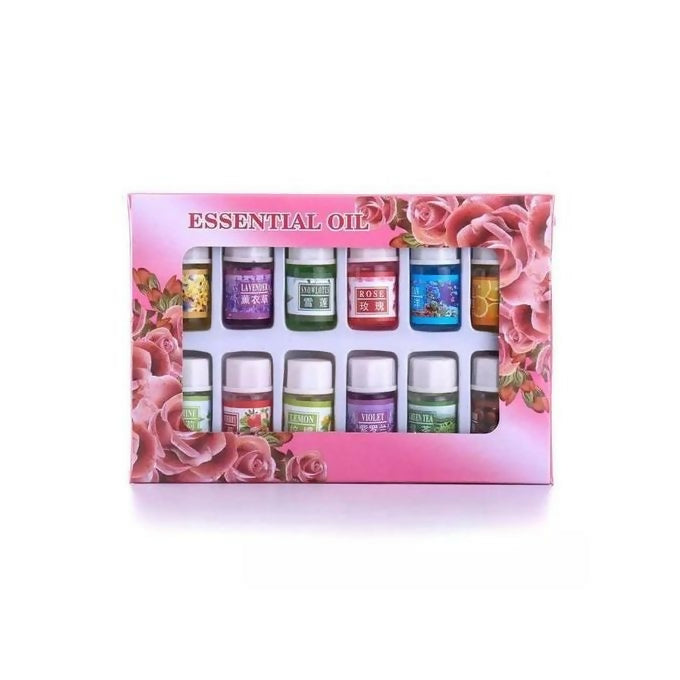1
/
of
1
Jayvie
Essential Oils
Essential Oils
Regular price
KSh658
Regular price
KSh543
Sale price
KSh658
Shipping calculated at checkout.
Quantity
Couldn't load pickup availability
Common Essential Oils and Their Uses:
-
Lavender Oil:
- Known for its calming and relaxing properties.
- Commonly used to reduce stress, promote sleep, and soothe skin irritations like burns or insect bites.
- Often diffused in the air or added to bathwater.
-
Peppermint Oil:
- Has a cooling and invigorating effect.
- Used to relieve headaches, reduce muscle pain, and improve focus.
- Known for its ability to soothe digestive issues when diluted and applied topically to the abdomen.
-
Tea Tree Oil:
- Powerful antimicrobial and antifungal properties.
- Used for treating acne, dandruff, and minor cuts or scrapes.
- Commonly found in natural cleaning products due to its germ-fighting capabilities.
-
Eucalyptus Oil:
- Known for its respiratory benefits.
- Used to clear nasal passages, ease breathing, and treat cold symptoms.
- Often added to vaporizers or diluted in massage oils for muscle relief.
-
Lemon Oil:
- Uplifting and energizing.
- Used for cleaning, disinfecting, and improving mood.
- Frequently added to DIY cleaning solutions due to its natural degreasing and deodorizing properties.
-
Frankincense Oil:
- Known for its anti-inflammatory and anti-aging properties.
- Used in skincare routines to improve the appearance of wrinkles, scars, and stretch marks.
- Frequently used in meditation practices for grounding and centering.
-
Rosemary Oil:
- Boosts memory and concentration.
- Applied to the scalp to promote hair growth and reduce dandruff.
- Also used in massage oils for muscle relief.
-
Ylang Ylang Oil:
- Known for its floral, sweet scent and stress-relieving properties.
- Used to enhance mood, reduce blood pressure, and promote relaxation.
- Found in perfumes and skincare products.
-
Chamomile Oil:
- Soothing and anti-inflammatory.
- Commonly used for promoting sleep and calming irritated skin.
- Helpful in treating eczema, rashes, and other skin conditions.
-
Cedarwood Oil:
- Has a woody, calming scent.
- Used to promote restful sleep, reduce stress, and improve focus.
- Often included in hair and scalp treatments for its ability to promote hair growth and reduce dandruff.
How Essential Oils are Used:
-
Aromatherapy:
- Essential oils are often diffused into the air using a diffuser to promote relaxation, improve mood, or purify the air.
- They can also be inhaled directly from the bottle or added to aromatherapy jewelry.
-
Topical Application:
- Essential oils are commonly diluted in a carrier oil (such as coconut, jojoba, or almond oil) before being applied to the skin.
- Used in massage, skincare routines, or to treat specific ailments like muscle pain, acne, or minor wounds.
-
Baths:
- Adding a few drops of essential oils to bathwater can enhance relaxation and provide skin benefits.
- Oils like lavender or eucalyptus are popular for a soothing and refreshing bath experience.
-
Inhalation (Steam):
- For respiratory benefits, a few drops of essential oil can be added to hot water for steam inhalation.
- Eucalyptus or peppermint oils are often used to relieve congestion or cold symptoms.
-
Household Cleaning:
- Essential oils like lemon, tea tree, and lavender are added to DIY cleaners for their antimicrobial and deodorizing properties.
- They can be added to water, vinegar, or baking soda for cleaning surfaces or freshening laundry.
Benefits of Essential Oils:
- Physical Health: Can relieve headaches, improve digestion, reduce inflammation, and boost the immune system.
- Mental Health: Widely used for stress relief, anxiety reduction, mood improvement, and better sleep.
- Skincare: Help treat acne, reduce scars, and nourish the skin.
- Aromatherapy: Promotes relaxation, improves focus, and elevates mood.
Safety Considerations:
- Dilution: Always dilute essential oils in a carrier oil before applying them to the skin to avoid irritation or allergic reactions.
- Allergies: Conduct a patch test before using a new essential oil to ensure you don’t have an allergic reaction.
- Internal Use: Only certain essential oils are safe for internal use, and they must be food-grade. Consult a healthcare provider before ingesting any essential oils.
- Pregnancy and Children: Some essential oils may not be safe during pregnancy or for use on children, so it’s important to consult with a medical professional before use.
Share
No reviews


